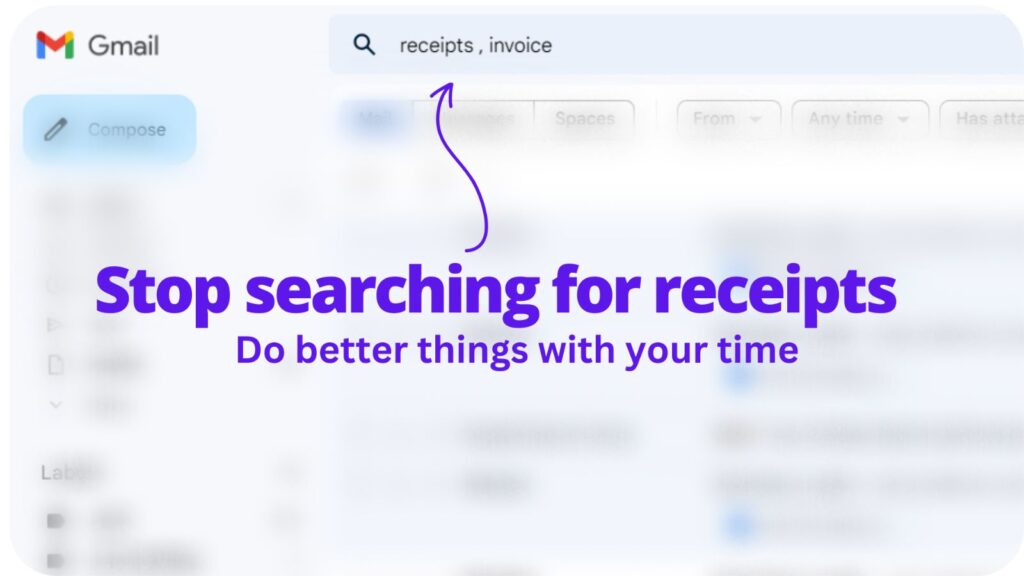Imagine this – you’re up for an audit, but there’s a problem. Those receipts you’re supposed to keep. You can’t find them anywhere.
It’s a common problem and there are solutions. In this piece, we’ll look at exactly what happens when you’re audited without receipts and we’ll give you some helpful tips on what to do next. So, sit back, relax, and let’s delve into it together.
Why You Might Don’t Have Receipts for Audit
Common Reasons People Don’t Keep Receipts
Everyone’s been there. You buy something, get a receipt, and lose it. Or perhaps, in your case, you’ve simply lost your receipts. It happens. But why does it happen so often? For starters, people are busy.
Between juggling work, family, and personal life, keeping track of tiny pieces of paper can be hard. That’s why receipts often end up in the trash.
Secondly, people underestimate the importance of receipts. They might think, “I’ll remember this,” or “This isn’t a big purchase, so it doesn’t matter.” However, these small expenses add up.
And, unfortunately, the Internal Revenue Service (IRS) needs proof of these expenses during a tax audit. Not having these proofs can affect your claim for tax deductions.
Lastly, the world is moving towards digital. Automated payment systems and online banking make transactions easy and paperless. As a result, we often forget to request or save digital receipts. But remember, the IRS can ask for these receipts during an audit. So, it’s crucial to save them, just like paper ones.
The Importance of Receipts in Audits
Now, let’s understand why receipts are so important in audits. Simply put, receipts are proof. They show the IRS that you spent the money you claim on your tax return.
For instance, the IRS might want to see receipts if you claim certain business expenses. It’s a way for them to verify that the expenses were real.
Receipts are also necessary to prove the amount you spent for allowable expenses. Let’s say you claim a deduction for business entertainment expenses.
The IRS will want to see a receipt to confirm that the amount you’re claiming matches the actual cost. In other words, receipts are key to maintaining financial integrity during an audit.
What if you lose a receipt? Or forget to keep it? Don’t worry. There are other ways to prove expenses, like bank statements or credit card statements. But keep in mind, it’s always easier and safer to keep the original receipts. After all, you never know when you’ll need them.
The Implications When You Don’t Have Receipts for Audit
The Role of Receipts in Audit Evidence
Firstly, receipts are crucial in an IRS audit. They act as evidence for the Internal Revenue Service. Receipts show that you’re truthful about your business expenses. They prove that you spent the money you’re claiming on your tax return. Without them, the IRS can’t verify your claims.
For example, if you claim expenses for mileage or cell phone use, the IRS might want to see receipts or records. These documents serve as hard evidence. They prove in tax court that you’re not making things up. In short, receipts help maintain your financial integrity in the IRS’s eyes.
In case of misplaced receipts, other documents might help. Bank statements or business calendar records can act as proof. They can show transactions or events related to your business expense or expenses. But remember, it’s always best to have the original receipts.
Potential Consequences of Missing Receipts
What if you claim tax deductions but can’t provide the receipts? Not having receipts can lead to a few problems. Above all, the IRS might disallow your claimed deductions. This means you could end up with a bigger tax bill. Plus, you might face additional taxes or even criminal penalties for tax evasion.
Consider this scenario. You’re a small business owner. You’ve claimed deductions for certain business expenses on your income tax returns. But, during an audit, you can’t produce the receipts to back up your claims. In this case, the IRS auditors might conclude that your claims are not valid.
Consequently, they’ll increase your taxable income. This could push you into a higher tax bracket, resulting in a larger tax bill. Worst case, if they suspect tax fraud, you might even face legal trouble.
What to Do When You Don’t Have Receipts for Audit

Communicating with Your Auditor
Firstly, it’s important to communicate with your IRS agent. If you’re audited by the IRS and don’t have receipts, let them know. Honesty is the best policy here. Don’t try to hide it or make up stories. The truth always comes out in an IRS audit.
Your tax professional can help you with this. They can guide you on what to say to the IRS auditors. They’ll also help you understand the audit notice. So, make sure to hire a good tax pro if you get an audit letter.
In some cases, the IRS might give you time to gather your receipts. If you’ve misplaced them, you might be able to request copies. For instance, if you made business purchases using a credit card, your bank statements could help. You can ask your bank or business partners for these documents.
Alternate Proofs When You Don’t Have Receipts
What if you can’t get the receipts at all? This is where alternate proofs come in. These are other documents that can prove your business expenses. They include things like canceled checks, bank account statements, and calendar or appointment book entries.
For example, let’s say you claimed tax deductions for mileage. You’ve lost the receipts, but you have a business calendar. This calendar shows all your business trips for the year. It also shows the purpose of each trip. This could serve as proof for your claim.
The same goes for other expenses like cell phone records and capital improvements. Any document that proves your claim can work. The key is to provide as much proof as possible. The more evidence you have, the better your chances of passing the audit.
Future Strategies If You Don’t Have Receipts for Audit

Effective Record-Keeping Strategies
Understanding the importance of keeping receipts begins with adopting effective record-keeping strategies. First, let’s make friends with filing. Start keeping all receipts from your business expenses.
This is your shield if the IRS sends an audit notice. You’ll show them that you’re a good citizen. And, that your business is honest about money.
But, where to store all these receipts? Make separate folders for different expense types. For instance, one for mileage records, another for things you buy for the business, and so on.
When you need a receipt, you’ll know exactly where to find it. And, when it’s time for the audit, you’ll already be ahead of the game.
Also, start using a business calendar. Write down all your business stuff there. Include when, why, and how much it cost. This way, you’ve got another proof for the IRS. And, when it’s time to claim deductions while filing taxes, you’re all set.
Digitally Managing Receipts for Future Audits
Now, we can keep receipts on our computers or phones. The IRS is cool with digital receipts. This can be super helpful for people who run small businesses or work for themselves.
So, how do we do this? Firstly, you can take pictures of your paper receipts. Or, use a scanner. Then, save them on your computer or phone. Just remember to back up these files somewhere safe.
Also, you can try out apps for receipt management. They’re like digital filing cabinets. Some even link to your bank account or credit card. This way, they automatically track your expenses. It’s like having a helper for your tax return.
Finally, if you buy something online, save the email receipt. The IRS is fine with them too. Just make sure you keep them in a safe place.
Seeking Professional Help When You Don’t Have Receipts for Audit
When to Seek Advice from a Tax Professional
Imagine getting a letter from the IRS. This could be an audit notice. It can be scary, right? That’s a good time to find a tax professional. They’ll know what to do.
If you’ve lost your receipts, a tax professional can be a lifesaver. They know the rules about missing receipts. They can guide you through the audit process. They’ll help make sure you don’t get into trouble.
Here’s the thing – IRS agents mean business. They have a job to do. They make sure everyone pays their taxes. But, a tax professional knows how to talk to them. It’s like having a translator who speaks ‘tax’.
Finding the Right Tax Consultant
Finding the right tax professional is like finding a new friend. You need someone who knows about tax laws, audits, and misplaced receipts.
Start by asking people you know. Maybe a friend or a family member knows a good tax professional. If not, try looking online. There are websites that can help you find one.
Before you pick a tax professional, ask them some questions. For example, ask about their experience with IRS audits. Or, how they can help if you have misplaced receipts. They’re going to be helping you with a big problem.
Lessons to Remember When You Don’t Have Receipts for Audit
Key Insights from Audit Experiences
Think of an audit like a surprise test. The IRS is like a teacher checking your homework. That’s the tax return you filed.
When the IRS audits you, they want proof for your claims. Like receipts for your business expenses. But what happens if you get audited and don’t have them?
One key insight from an audit is about being organized. Keep track of your business expenses. Hold onto your receipts. If you don’t, you might end up in a pickle during an audit.
Also, remember the Cohan rule. It says you can estimate expenses without receipts. But it’s not always allowed. It’s better to have proper documentation.
Planning for a Smooth Audit Next Time
Once you go through an audit, you will know what to expect if you get another one. You can plan for a smoother one next time.
Here’s a tip. Store all your receipts safely. Organized financial records will make audits easier. You won’t have to scramble for proof of your claims.
Also, consider using apps for storing receipts. They can keep your records tidy. And you can access them anytime you want. No more lost receipts.
Frequently Asked Questions
What if I can’t find my receipts before an IRS audit?
It’s common to lose track of receipts. You can use other documents like credit card statements or bank records. These papers show the IRS the money you spent. It’s always best to keep your receipts. But if you don’t have them, these documents can help.
Can I estimate my expenses without receipts during an IRS audit?
Sometimes you can There’s a rule called the Cohan Rule. It lets taxpayers claim reasonable expenses, even without receipts. But, use it with caution. It’s not always allowed. It’s better to keep your receipts.
Can lost receipts lead to legal issues during an IRS audit?
It’s possible. If you don’t have receipts and can’t prove your claims, you might face problems. The IRS might not allow your deductions. This could lead to a higher tax bill. In the worst case, you could face legal trouble for tax evasion.
Can I use digital receipts in an IRS audit?
The IRS accepts digital receipts. Just make sure to back them up in a safe place. Digital receipts can be pictures of paper receipts, email receipts, or receipts from apps.
Conclusion
Getting audited without receipts can be scary. But remember, it’s something you can handle. The key is to stay organized. Keep track of all your expenses. Save your receipts – both paper and digital.
And if you do lose a receipt, remember that other documents can help. Bank statements, credit card statements, or even a business calendar could work.

Collect receipts from your email automatically!
Try WellyBox - your AI assistant for receipts😃
Start for Free
